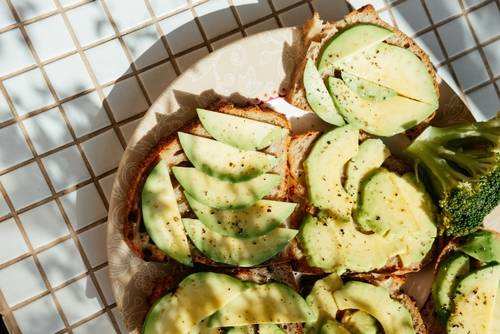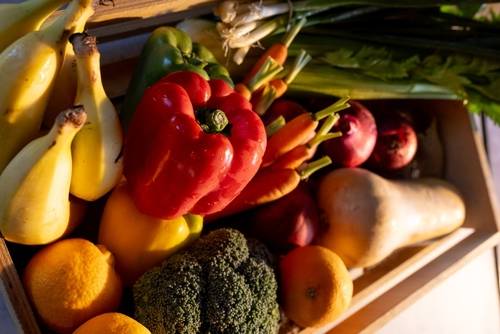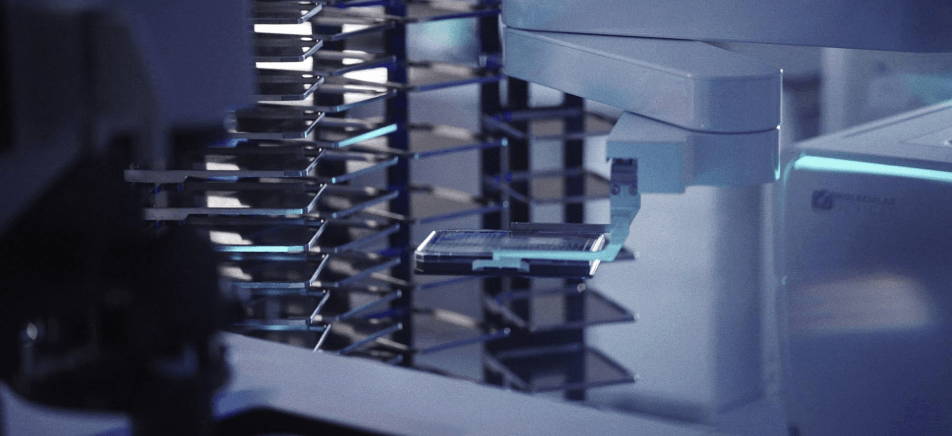Nutrition 101
Welcome to a new way of thinking about food—one that starts with you.
At GenoPalate, we believe that when you understand what your body truly needs, healthy choices feel more natural, more empowering, and more sustainable.
This guide walks you through the basics of nutrition—the essential building blocks behind your personalized report. Whether you're planning meals, shopping for groceries, or ordering takeout, our goal is simple: to help you feel confident and supported every step of the way.
Let’s get started.
Food = energy for you

Every bite you take has a purpose.
Your body transforms food into energy through digestion, starting the moment food enters your mouth. As it moves through your system, nutrients are broken down, absorbed, and delivered to your cells to fuel everything from your brainpower to your workout.
Some nutrients like fats and proteins take a longer route through the liver before they’re ready to be used. Others, like carbohydrates, break down quickly into glucose, your body’s fastest fuel source. But no matter the path, it all leads to one goal: supporting your unique body from the inside out.
Macros and micros: what you’re really eating
MACRONUTRIENTS
These are the nutrients you need in larger amounts to keep your body running. The three macronutrients are:
• Carbohydrates: Your body’s go-to fuel
• Proteins: Help build and repair tissues
• Fats: Support your cells, hormones, and energy
MICRONUTRIENTS
Micronutrients are the vitamins and minerals your body needs in smaller amounts. They support everything from your immune system to bone strength. For example:
• Vitamin C supports immune health
• Calcium helps keep bones and muscles strong
Carbs: friend, not foe

Carbohydrates give your body energy. But not all carbs work the same way.
Simple carbs like candy and soda digest quickly and can spike your blood sugar.
Complex carbs like fruits, vegetables, and whole grains break down more slowly and offer fiber, vitamins, and minerals that help keep you full and energized.
Your DNA can offer clues about which types of carbs your body handles best.
Fats: essential and powerful

Fats do more than fill you up. They:
• Provide long-lasting energy
• Protect your organs
• Help absorb vitamins A, D, E, and K
• Support brain function and hormone production
Some fats are more beneficial than others. Your personalized report can guide you toward the types that best support your body.
Protein: the building block of you

Protein is made of amino acids, which your body uses to build and maintain everything from muscles to skin and hair. Protein also supports key functions like enzyme and hormone activity.
Including the right amount and kind of protein in your meals helps keep your body strong, balanced, and resilient.
Vitamins: fat-soluble and water-soluble

Vitamins are either fat-soluble or water-soluble.
Fat-soluble vitamins (A, D, E, K) are stored in your liver and fatty tissue. Your body absorbs them best when they’re eaten with healthy fats.
Water-soluble vitamins (like B vitamins and vitamin C) are not stored in the body. You need to replenish them often through food or supplements, and any extra is filtered out by the kidneys.
Understanding how your body processes different vitamins can help you choose foods that give you the most benefit.
Food sensitivities: what your DNA can tell you

While genetic testing can’t diagnose allergies or intolerances, it can reveal if you may be more likely to have certain food sensitivities.
LACTOSE
Lactose is the natural sugar in dairy products like milk and cheese. Some people have a harder time digesting it due to low levels of lactase, the enzyme that breaks it down. Certain genes, like LCT, may make this sensitivity more likely.
GLUTEN
Gluten is a protein found in wheat, barley, and rye. Some people experience digestive discomfort after eating it. Variants in genes such as HLA-DQA1 and HLA-DQ8 may indicate a higher chance of gluten sensitivity.
Caffeine and alcohol: your body's unique response

Your genes influence how your body processes common substances like caffeine and alcohol.
CAFFEINE
Found in coffee, tea, soda, and chocolate, caffeine is a stimulant that increases alertness. The CYP1A2 gene helps determine whether you metabolize caffeine slowly or quickly, which can affect how it makes you feel.
ALCOHOL
Alcohol is a depressant that slows down your nervous system. Genes like ADH1B and ADH1C impact how well your body breaks down alcohol and how sensitive you may be to its effects.
The bottom line? The more you know, the better you feel

You don’t have to be an expert to start making better choices. You just need the right tools and support.
Your GenoPalate report takes the guesswork out of nutrition and helps you build habits that are rooted in science and tailored to you. This guide is just the beginning. Every small step you take adds up to big changes in how you feel, think, and live.
Because your wellness starts with the little things.










